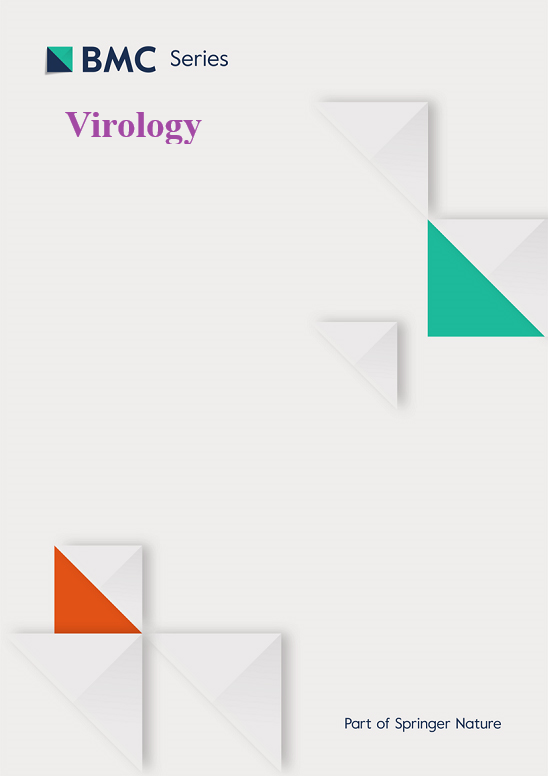Porcine epidemic diarrhea virus nsp14 inhibited IFN-Ⅰ production by targeting RIG-I for degradation
IF 2.8
3区 医学
Q3 VIROLOGY
引用次数: 0
Abstract
Porcine epidemic diarrhea virus (PEDV) is enteropathogenic coronavirus, and mainly damages intestines, causing diarrhea, vomiting, anorexia, and depression. PEDV highly pathogenic strains spread rapidly and pose significant economic and public health concerns in our country. After virus invasion, RIG-I detects viral double-stranded RNA to activate antiviral innate immunity, inducing IFN responses. PEDV genome encodes 16 non-structure proteins (nsp1-nsp16). These nsps have been effectively involved in the interaction of PEDV and host. PEDV nsp14 is a bi-functional enzyme that is responsible for proofreading and RNA cap G-N-7 methylation during viral infection. In this study, we confirmed that PEDV nsp14 was an interferon antagonist and inhibited IFN production induced by SeV and Poly(I:C). Further, we declared that PEDV infection decreased protein level of RIG-I, and the PEDV nsp14 played a part in this inhibitory effect. PEDV nsp14 induced cell apoptosis and then degraded RIG-I through caspase 8 and caspase 9 pathway during PEDV infection. The N7 MTase domain was critical for nsp14-mediated degradation of RIG-I. Our results revealed the novel function of PEDV nsp14 in virus-host interaction and provided a potential antiviral drug target.
猪流行性腹泻病毒nsp14通过靶向rig - 1降解抑制IFN-Ⅰ的产生
猪流行性腹泻病毒(PEDV)是一种肠致病性冠状病毒,主要损害肠道,引起腹泻、呕吐、厌食和抑郁。PEDV高致病性毒株传播迅速,在我国造成了重大的经济和公共卫生问题。病毒入侵后,RIG-I检测病毒双链RNA激活抗病毒先天免疫,诱导IFN应答。PEDV基因组编码16个非结构蛋白(nsp1-nsp16)。这些nsps有效地参与了PEDV与宿主的相互作用。PEDV nsp14是一种双功能酶,在病毒感染期间负责校对和RNA帽G-N-7甲基化。在本研究中,我们证实了PEDV nsp14是一种干扰素拮抗剂,可以抑制SeV和Poly(I:C)诱导的IFN产生。进一步,我们宣布PEDV感染降低了RIG-I的蛋白水平,PEDV nsp14在这种抑制作用中发挥了作用。PEDV nsp14在感染PEDV过程中诱导细胞凋亡,并通过caspase 8和caspase 9途径降解rig - 1。N7 MTase结构域对于nsp14介导的rig - 1降解至关重要。我们的研究结果揭示了PEDV nsp14在病毒-宿主相互作用中的新功能,并提供了一个潜在的抗病毒药物靶点。
本文章由计算机程序翻译,如有差异,请以英文原文为准。
求助全文
约1分钟内获得全文
求助全文
来源期刊

Virology
医学-病毒学
CiteScore
6.00
自引率
0.00%
发文量
157
审稿时长
50 days
期刊介绍:
Launched in 1955, Virology is a broad and inclusive journal that welcomes submissions on all aspects of virology including plant, animal, microbial and human viruses. The journal publishes basic research as well as pre-clinical and clinical studies of vaccines, anti-viral drugs and their development, anti-viral therapies, and computational studies of virus infections. Any submission that is of broad interest to the community of virologists/vaccinologists and reporting scientifically accurate and valuable research will be considered for publication, including negative findings and multidisciplinary work.Virology is open to reviews, research manuscripts, short communication, registered reports as well as follow-up manuscripts.
 求助内容:
求助内容: 应助结果提醒方式:
应助结果提醒方式:


